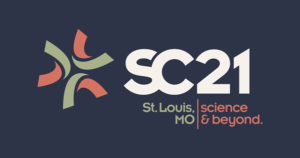 With support from Dell Technologies, a Clemson University student team prepares for a high performance computing competition at SC21.
With support from Dell Technologies, a Clemson University student team prepares for a high performance computing competition at SC21.
The SC21 international conference for high performance computing, networking, storage and analysis takes place Nov. 14–19 in St. Louis, and a Clemson University team backed by Dell Technologies will be there to compete in an HPC competition.
This Student Cluster Competition, held annually at the SC Conference series, creates an opportunity for some really bright computer engineering students to showcase their HPC expertise in a friendly, yet spirited, competitive event that draws teams of undergraduate students from around the world.
With sponsorship from hardware and software vendor partners, student teams design and build small clusters, learn scientific applications, apply optimization techniques for their chosen architectures, and compete in a non-stop, 48-hour challenge to complete real-world scientific workloads. Along the way, they showcase their HPC knowledge for conference attendees and judges.
The Clemson University team is under the guidance of advisor Dr. Jon Calhoun, an assistant professor in the Department of Electrical and Computer Engineering at Clemson. The students are all part of Dr. Calhoun’s Creative Inquiry (CI) program focused on exposing undergraduates to high performance computing.
“I was very fortunate to teach all of these bright young minds in my data structures class in various semesters while they were here at Clemson,” Dr. Calhoun says. “I saw their strong potential to conduct research and take part in the CI. So I was able to recruit them. And, actually, many of the students on the team are doing personal research in my group on lossy data compression, to help remove data movement, data retention and bottlenecks in high performance computing.”
![]() While these are academic activities, this type of work has immediate applications in the real world. Lossy data compression, for example, is a technique for significantly reducing the size of datasets by eliminating redundant or unnecessary data. This can be one of the keys to making it more viable to work with ever-larger datasets.
While these are academic activities, this type of work has immediate applications in the real world. Lossy data compression, for example, is a technique for significantly reducing the size of datasets by eliminating redundant or unnecessary data. This can be one of the keys to making it more viable to work with ever-larger datasets.
Among other tasks in the student competition at SC21, the participants will be challenged to build a cluster, run a series of benchmarks on it, get production applications up and running, and control system power usage, including reducing power caps while the system is up and running.
And, here again, these are activities that are important in the real-world operation of HPC clusters. For example, as processors continue to grow faster and hotter, the ability to dynamically tune applications and hardware to reduce power consumption and gain the best performance per watt is going to be a requirement for HPC shops.
 In another aspect of the competition, the students will be challenged to replicate experiments described in a paper from the prior year’s technical program. Students will have the opportunity to interact directly with the paper’s authors as they attempt to reproduce specific results and conclusions from the paper. And as part of this challenge, each student team writes a reproducibility report detailing their experiences in reproducing the results from the paper, and authors of the most highly rated reproducibility reports may be invited to submit their reports for publication.
In another aspect of the competition, the students will be challenged to replicate experiments described in a paper from the prior year’s technical program. Students will have the opportunity to interact directly with the paper’s authors as they attempt to reproduce specific results and conclusions from the paper. And as part of this challenge, each student team writes a reproducibility report detailing their experiences in reproducing the results from the paper, and authors of the most highly rated reproducibility reports may be invited to submit their reports for publication.
Dell Technologies is proud to support Dr. Calhoun and his team of computer engineering students. And like those students, we feel that SC21 can’t get here soon enough. To learn more about the student-oriented activities as SC21, visit the Students@SC program.
source: Dell Technologies




